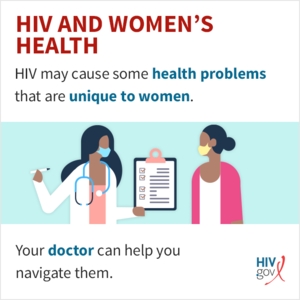Traumatic brain injury is one of the leading causes of disability and mortality in the United States. Here's all that you should know about brain injury.
The most common type of brain damage is traumatic brain injury (TBI). It impacts up to 1.7 million individuals each year and claims the lives of 52,000 people.
It is impossible to identify a TBI only based on symptoms or the intensity of the hit, no matter how serious the injury appears to be. If you or someone you love got hit in the head, seek medical help right once. It could save your life and help you avoid many long-term consequences of a brain injury. So, it's essential to look for Traumatic Brain Injury treatment and visit the right specialist.
Understanding TBI
A TBI is any injury to the brain that occurs suddenly. It occurs when the brain gets damaged by a bump, blow, jolt, or other force. It can result from a powerful or forceful blow to the head.
TBIs are classified as mild, moderate, or severe, depending on the extent of the injury. Mild versions of TBI generate just brief symptoms that fade away within a few days or weeks. With the most severe consequences, TBIs can result in lifelong brain damage, coma, or death.
Symptoms of TBI
Some link can be complicated for many people.
You control your actions when you raise your hand to wave hello to a friend or elevate your knee to take another step on the Stairmaster.
Your nervous system controls other physiological functions such as heart rate, skin temperature, and blood pressure involuntarily.
You don't think about speeding up your heartbeat, and it simply occurs as a result of your surroundings, such as when you're frightened, aroused, or exercising. You can get more control over these generally involuntary functions with one strategy. It's called biofeedback, and it's a type of therapy that can assist with migraine headaches, chronic pain, incontinence, and high blood pressure, among other things.
The premise behind biofeedback therapy is that you can acquire more control over your health by harnessing the power of your mind and being aware of what's going on inside your body. So, biofeedback therapy can also aid in TBI treatment.
To conclude:
Traumatic brain injuries can have long-term consequences, and you may be left with disabilities for life. Physical, behavioral, linguistic, and mental issues might all be present.
If your injury has left you with long-term problems, finding a support group may benefit you. Others who have had similar injuries can assist you in learning about your injury's challenges, give you coping skills, and provide emotional support.
The most common type of brain damage is traumatic brain injury (TBI). It impacts up to 1.7 million individuals each year and claims the lives of 52,000 people.
It is impossible to identify a TBI only based on symptoms or the intensity of the hit, no matter how serious the injury appears to be. If you or someone you love got hit in the head, seek medical help right once. It could save your life and help you avoid many long-term consequences of a brain injury. So, it's essential to look for Traumatic Brain Injury treatment and visit the right specialist.
Understanding TBI
A TBI is any injury to the brain that occurs suddenly. It occurs when the brain gets damaged by a bump, blow, jolt, or other force. It can result from a powerful or forceful blow to the head.
TBIs are classified as mild, moderate, or severe, depending on the extent of the injury. Mild versions of TBI generate just brief symptoms that fade away within a few days or weeks. With the most severe consequences, TBIs can result in lifelong brain damage, coma, or death.
Symptoms of TBI
Some link can be complicated for many people.
You control your actions when you raise your hand to wave hello to a friend or elevate your knee to take another step on the Stairmaster.
Your nervous system controls other physiological functions such as heart rate, skin temperature, and blood pressure involuntarily.
You don't think about speeding up your heartbeat, and it simply occurs as a result of your surroundings, such as when you're frightened, aroused, or exercising. You can get more control over these generally involuntary functions with one strategy. It's called biofeedback, and it's a type of therapy that can assist with migraine headaches, chronic pain, incontinence, and high blood pressure, among other things.
The premise behind biofeedback therapy is that you can acquire more control over your health by harnessing the power of your mind and being aware of what's going on inside your body. So, biofeedback therapy can also aid in TBI treatment.
To conclude:
Traumatic brain injuries can have long-term consequences, and you may be left with disabilities for life. Physical, behavioral, linguistic, and mental issues might all be present.
If your injury has left you with long-term problems, finding a support group may benefit you. Others who have had similar injuries can assist you in learning about your injury's challenges, give you coping skills, and provide emotional support.






















